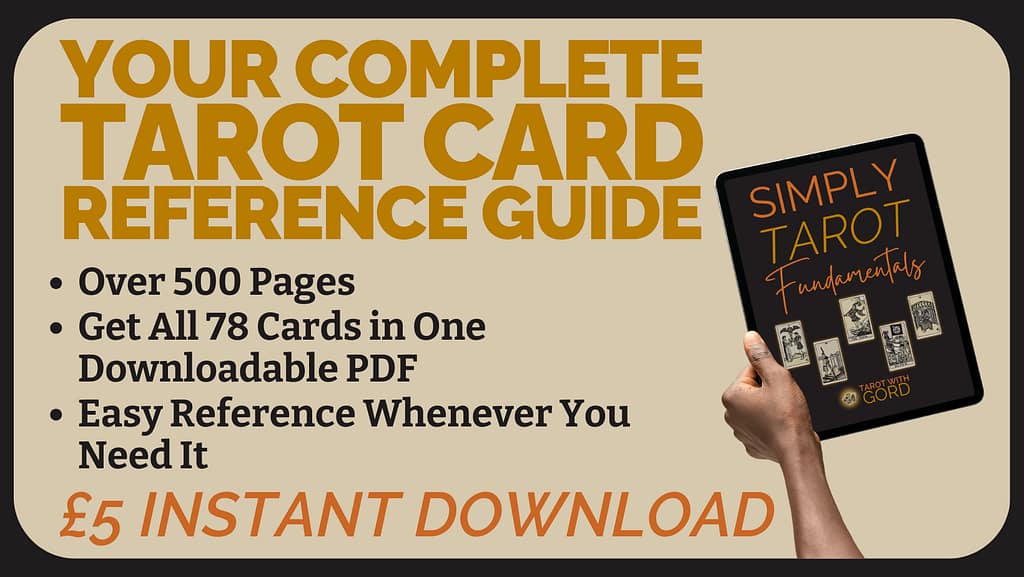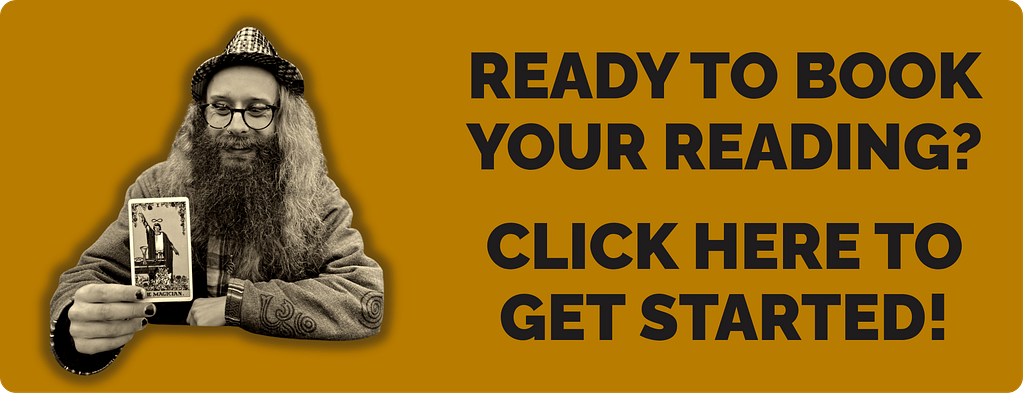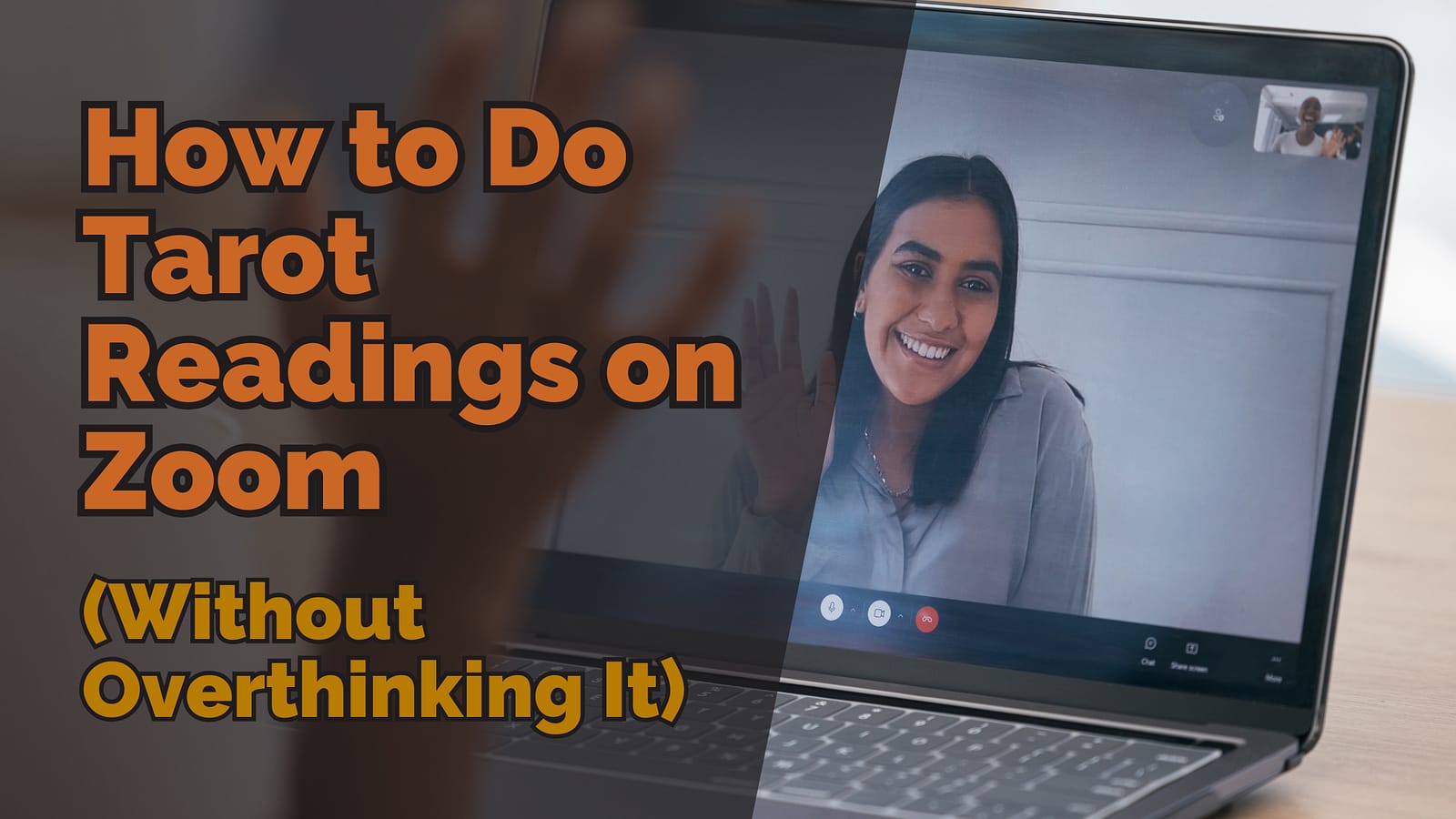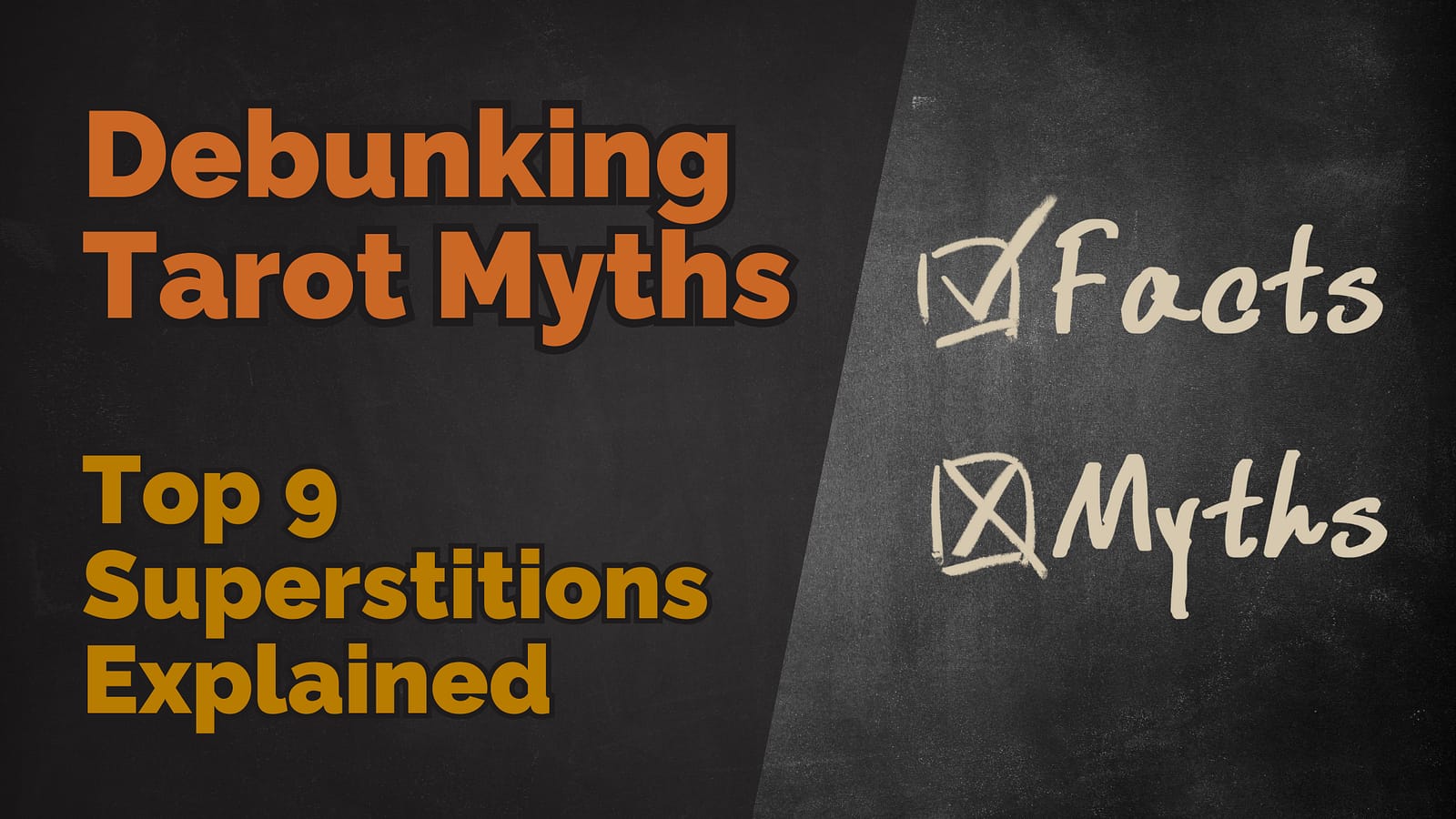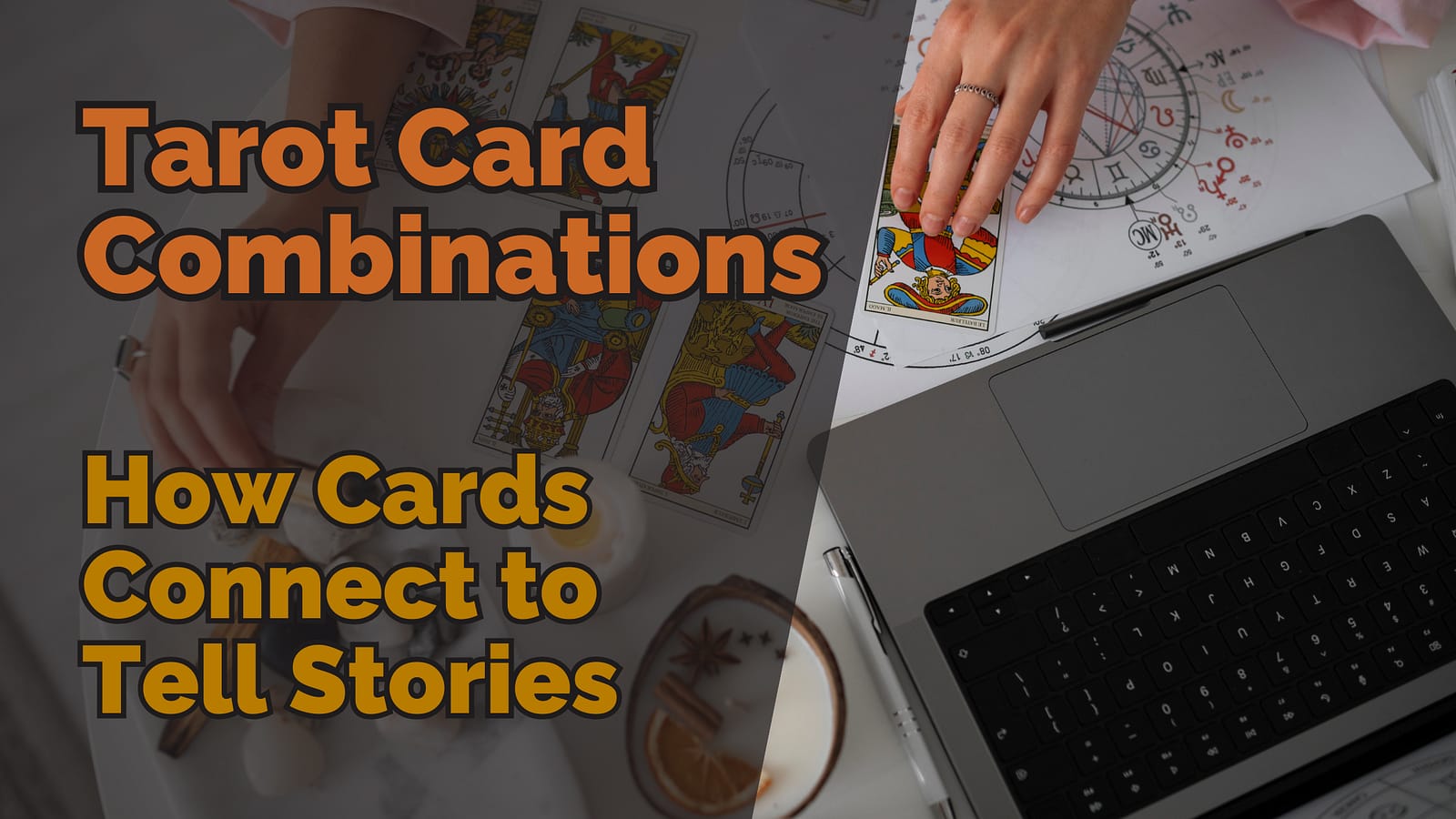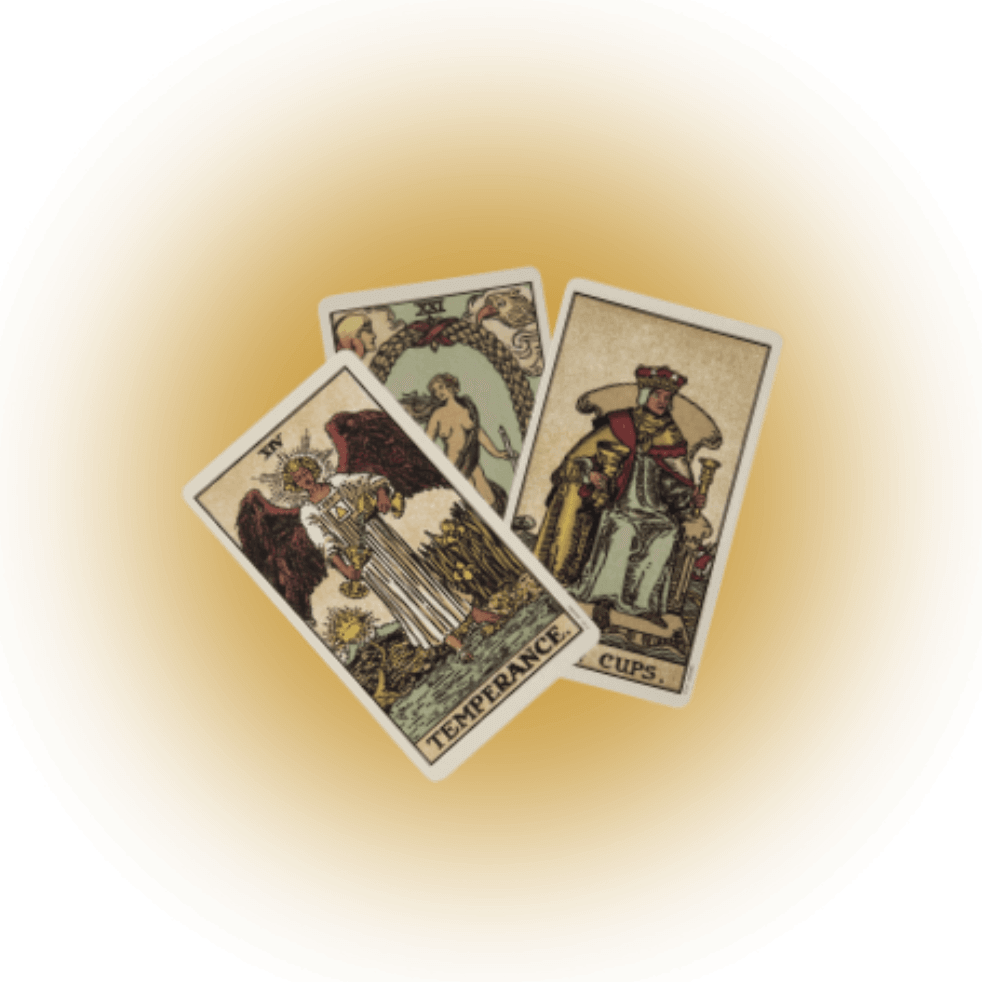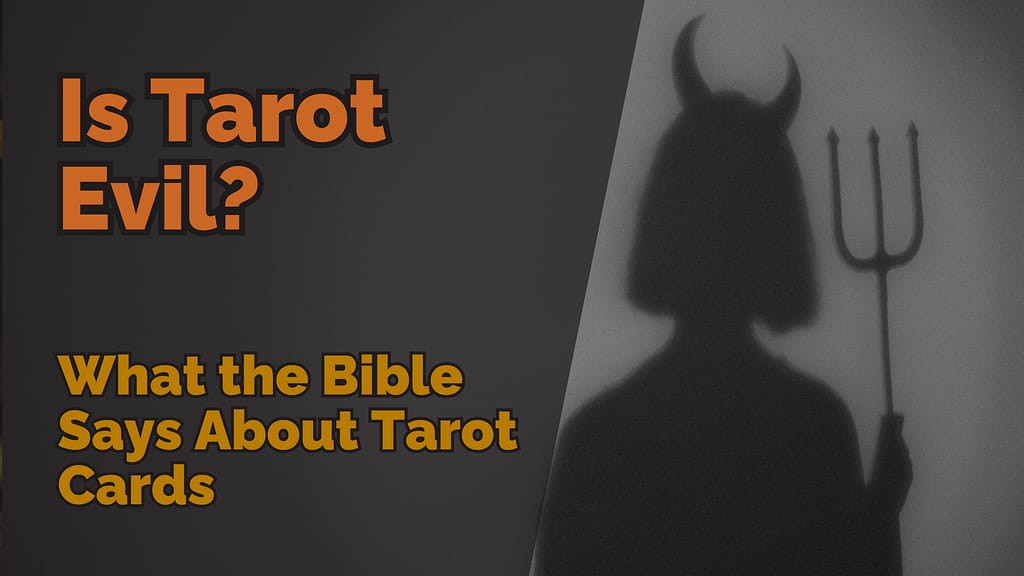
Table of Contents
Introduction
Is tarot evil? Growing up in the church, I was taught that it absolutely was. Tarot cards were lumped in with witchcraft, Ouija boards, and all things demonic. Sermons warned us of the dangers of engaging with anything outside of prayer and scripture. I genuinely believed that even being near tarot cards could open a door to dark forces.
But during the pandemic, over half a decade after deconstructing my faith, something unexpected happened: a friend offered me a tarot reading. At first, I hesitated. All those warnings from my childhood came rushing back. But I decided to give it a go, and what I found surprised me.
Tarot wasn’t evil or magical. It was just a tool—a mirror for self-reflection and understanding. This realisation connected to the broader misconceptions I had grown up with, particularly how tarot had been framed as inherently dangerous or tied to dark forces, which I later understood was far from the truth.
In this article, I’ll unpack the misconceptions around tarot, explore why it’s often viewed as dangerous, and share how my perspective shifted once I experienced it for myself. We’ll also address questions like: Are tarot cards evil? What does the Bible say about tarot cards? And is tarot reading a sin?
Where Does the Fear of Tarot Come From?
Are Tarot Cards Evil? Understanding Religious Teachings
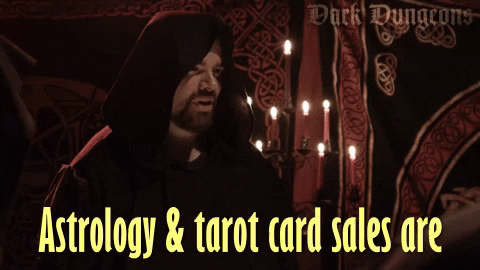
For many of us raised in religious environments, the fear of tarot is deeply ingrained. In my church, anything remotely connected to the “occult” was painted as sinful and dangerous. Verses like Leviticus 19:26 (“Do not practice divination or seek omens”) were often quoted to warn against anything that could be seen as fortune-telling. Tarot was seen as not just misguided but actively harmful—a way of inviting evil into your life.
However, Biblical references like these were often addressing specific cultural practices in neighbouring regions that were considered deceptive or harmful. The prohibition of divination in Leviticus wasn’t necessarily a condemnation of all forms of intuition or spiritual insight. Stories like Joseph interpreting dreams in Genesis and the Magi following a star to find Jesus suggest that divination itself wasn’t inherently evil—it depended on the context and intention.
The Bible offers a nuanced perspective on divination. While certain practices were forbidden, others were celebrated when performed with the intention of seeking divine guidance. For example, Joseph’s interpretation of dreams was seen as a divine gift, and the Magi’s use of astrology to find Jesus was considered a meaningful act of faith.
This duality suggests that it’s not the practice itself but how it is used and the purpose behind it that truly matters, raising parallels to modern tools like tarot cards, which, when used ethically, can foster self-reflection and personal growth.
What Does the Bible Say About Tarot Cards?
The Bible doesn’t specifically mention tarot cards, as they didn’t exist during Biblical times. Instead, it addresses practices like divination and astrology in general terms. This naturally raises common questions like whether tarot is sinful or what the Bible actually says about practices like tarot. Context is crucial here. While some passages warn against divination, others show divination being used for positive purposes, like Joseph interpreting dreams.
The story of the Magi is another example. These astrologers followed a star to find Jesus, essentially practising a form of divination. If divination were entirely condemned, why would this act be included in a story celebrating the birth of Christ? Such nuances challenge the idea that all divination is inherently evil.
Media Portrayals of Tarot and Fear of Evil Tarot Cards
Pop culture has heavily influenced the fear surrounding tarot. Movies and TV often depict tarot as a tool for summoning dark forces or predicting doom. Think of scenes where the Death card is drawn, followed by chaos or tragedy, such as in horror films where it signals imminent disaster or death.
Another common trope is the mysterious fortune-teller surrounded by candles, using tarot to manipulate or harm others. These dramatic portrayals make it seem like tarot is linked to sinister forces, reinforcing those fears that tarot is demonic or dangerous—when the reality is far less spooky.
In reality, tarot is far less dramatic. These cards don’t summon spirits or dictate fate—they are a tool for reflection and insight. Pop culture thrives on sensationalism, but these depictions often misrepresent what tarot actually is, overlooking its practical and introspective uses. For example, tarot can be used to clarify personal goals, explore emotions, or even guide creative processes. These practical applications stand in stark contrast to the sensationalised portrayals in media.
What Is Tarot Really?
Is Tarot Card Reading a Sin or a Tool for Reflection?
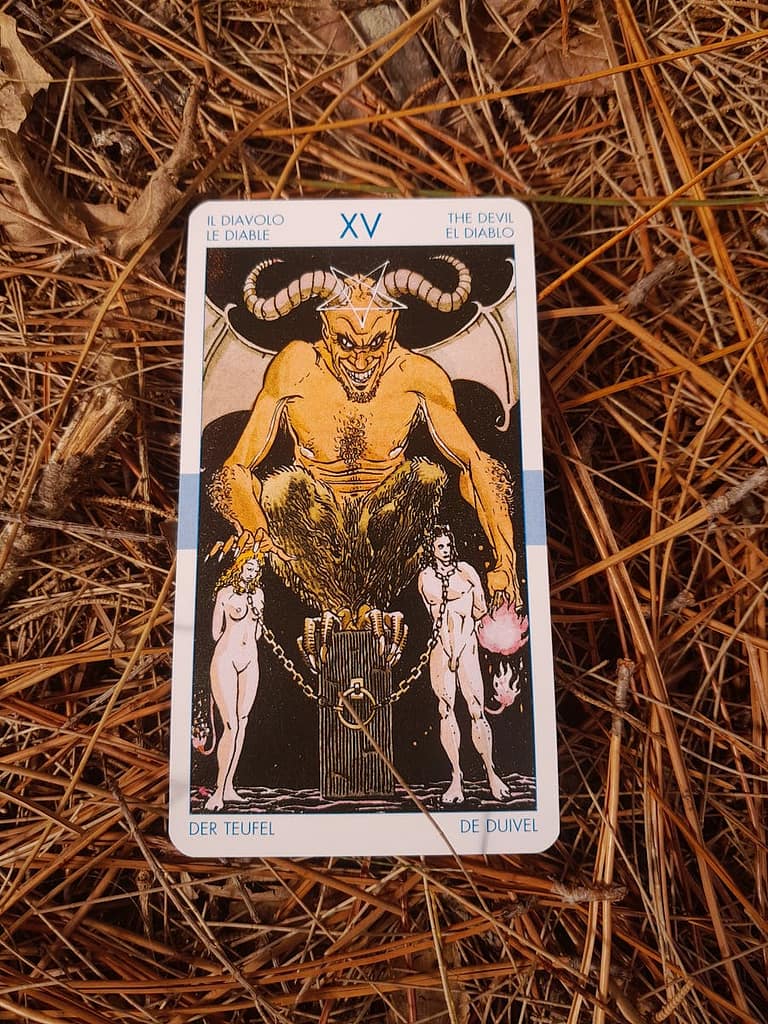
When I experienced my first tarot reading, I expected something mystical and otherworldly. Instead, it was a surprisingly grounded experience. My friend used the cards to ask questions that encouraged me to reflect on my life. The reading didn’t predict the future or summon spirits. It simply offered a different perspective.
At its core, tarot is a tool for self-reflection. Each card represents a story or archetype that resonates with universal human experiences. Archetypes are fundamental symbols or themes found across cultures and time—like the hero, the caregiver, or the trickster.
For example, the Fool card represents new beginnings and infinite potential, inviting you to reflect on areas of your life where you might take a leap of faith. The cards don’t tell you what to do but help you think through your challenges and opportunities. It’s less about divination and more about introspection.
The Devil Tarot Card: Misunderstanding and Symbolism
The Devil card is one of the most misunderstood in tarot. People often associate it with demonic forces, but its meaning is symbolic. The Devil tarot card represents the chains that hold us back—fear, addiction, or self-doubt.
For example, reflecting on this card might encourage someone to examine patterns of self-sabotage or unhealthy attachments in their life, leading to actionable steps for personal growth and empowerment. It’s a reminder to confront what limits us, not a sign of evil.
Misinterpretations like these are exactly why people often wonder if tarot is demonic. The reality is that the cards themselves are neutral. The Devil card, like all tarot cards, invites reflection and self-awareness. It’s not about summoning dark forces but addressing what holds us back in life.
Why Tarot Isn’t Evil
It’s About Intention
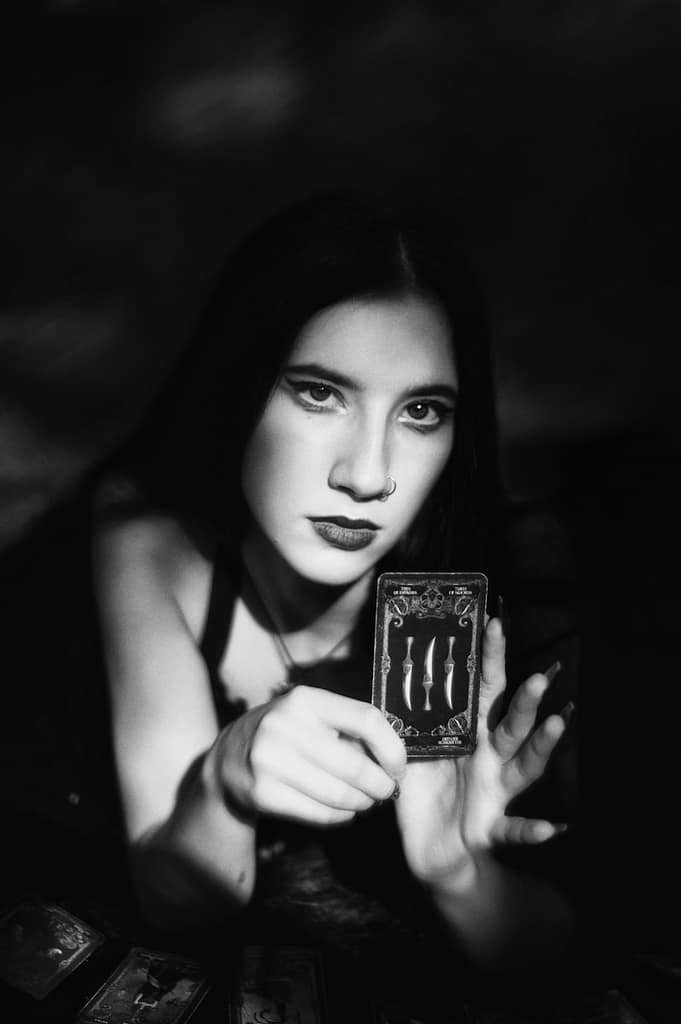
The power of tarot lies in how it is used. If your intention is to gain clarity or connect with your inner wisdom, there is nothing inherently evil about it. Tarot doesn’t control your life—you do. The cards are simply a tool to help you reflect and understand.
Encourages Personal Growth and Ethical Practice
Tarot can be a powerful tool for personal growth. By reflecting on the messages in the cards, you take responsibility for your actions and choices. It’s not about relying on external forces but about tapping into your own intuition and strength.
Like any tool, tarot can be misused. It’s possible to exploit it for manipulation or deception, just as spiritual practices within the church can be misused. Tarot itself, however, is neutral. A hammer can build a house or cause harm—it depends on how it’s used. Similarly, tarot cards are neutral tools whose impact depends entirely on the intention and ethics of the person using them. Just as we wouldn’t blame a hammer for being used destructively, we shouldn’t fear tarot itself—it’s how it’s applied that makes the difference.
Ethical tarot readings involve using the cards responsibly and focusing on self-reflection and growth rather than manipulation or harm. This includes setting clear intentions before a reading, respecting the boundaries and beliefs of those involved, and avoiding making definitive claims about the future. Ethical practice also means using tarot as a tool for empowerment, helping others explore their own insights and choices rather than imposing interpretations on them.
Addressing Religious Concerns
Are Tarot Cards Bad According to Scripture?
For those raised in religious environments, reframing tarot as a tool for introspection rather than divination can be helpful. Similar to journaling or meditation, tarot encourages self-awareness and emotional processing. It doesn’t need to conflict with faith—it can complement it.
What Does the New Testament Say About Tarot Cards?
While the New Testament doesn’t mention tarot specifically, it emphasises practices that promote understanding and ethical behaviour.Questions like whether tarot reading is ‘bad’ often overlook the crucial point: the intention behind it matters far more than the tool itself. Spirituality is deeply personal, and tarot can be a bridge to deeper self-awareness.
How to Explore Tarot Without Fear
Start Small and Reflect
If you’re curious about tarot, start small. Pull a single card and think about its meaning. For example, you might start by asking, “What energy should I focus on today?” and drawing a card like the Sun, which symbolises positivity and success. Alternatively, the Fool card can be an excellent starting point, representing new beginnings and the courage to take a leap of faith. To make the experience more approachable, consider using a beginner-friendly deck like the Rider-Waite tarot, known for its clear imagery and symbolism. Alternatively, choose a deck with artwork that resonates with you. There’s no right or wrong way to start, so this gentle approach can help ease any lingering worries about tarot being ‘bad.’
Set Intentions for Ethical Tarot Practice
Before a reading, set clear intentions. Whether you seek clarity, guidance, or self-reflection, knowing what you want helps shape the experience. Setting intentions ensures tarot is used positively and responsibly.
Final Thoughts: A Tool, Not a Threat
For years, I avoided tarot out of fear, believing it was something to be shunned. But my first reading showed me that tarot isn’t about evil or magic. It’s a neutral tool—a way to connect with yourself and explore your inner world.
If you’ve ever worried about tarot being sinful or dangerous, I hope this has put some of those fears to rest. Tarot isn’t something to fear—it’s something to explore. When used responsibly, tarot becomes a tool for growth and empowerment, not something to fear.
Ready to explore the power of tarot for yourself? Book a reading with me today and experience how tarot can provide clarity, guidance, and empowerment on your journey.

